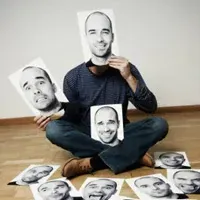Your Money Story
Written by

Get real about your relationship to money. Discover your money story by answering the questions below.
We all have lots of conditioning on board about what money is and what it isn’t. What the presence or absence of money may or may not do in our lives. Generally money is a very emotionally loaded subject and we all have very strong beliefs about it.
Our beliefs come out of our upbringing and our cultural and social conditioning. It is from our beliefs about money that we make all sorts of assumptions about it that are largely not true. This all gets in the way when you are looking to make and manage money.
Our conditioning is largely invisible and yet has a huge influence on the way we operate. Some researchers estimate that 95 per cent of our beliefs and conditioning exist below the level of our conscious awareness. That would make 95 per cent of your beliefs and conditioning about money operating outside of your conscious awareness. This means it is not the 5 per cent you are aware of that is running the show.
For this reason it is useful to engage in exercises that can help you to see the beliefs you hold and the nature of your conditioning about money and how these are influencing your money matters.
Writing your money story is a good place to start. When the influences on your money behaviour are brought out into the open you are able to make choices that will better support the kind of relationship you want with money.
Answer the following questions as a way of revealing your real relationship to money:
• What was your family’s money situation, when you were young?
• Did you learn about money? How did you learn about money? What did you learn?
• What did your mother tell you verbally or non-verbally about money?
• What did your father tell you verbally or non-verbally about money?
• Was money talked about in your family when you were growing up? Were you included in money conversations?
• Did you get pocket money as a child? In this respect were you the same or different to your friends? How did you feel about this?
• Were you trusted with money as you were growing up?
• Can you remember your first purchase with money of your own? What was it? How old were you? How did it feel?
• Can you remember the first time you got paid in an employment situation? How much did you get? What did you do with it? How did you feel?
• Have you ever achieved something big with money? If so, what was it and how did it make you feel?
• What have you done with money that makes you feel bad?
• What have you done with money that makes you feel good?
• What is your attitude towards people who have a lot of money?
• What is your attitude towards people with very little money?
• If money were a person, how would you describe your relationship with them?
• Have you ever given money away? How did you feel about it?
• Has anyone ever given you money? How did you feel about that?
• Do you have any money secrets? What are they?
• What position do you want to be in with money in ten years time?
• What do you tell yourself about money? Do you feel guilt or regrets when you spend?
• How do you imagine others describe your relationship to money?
• How do you feel when you are paying bills?
• What is the most amazing thing you have done with money?
• Do you share the same attitudes to money as others close to you?
* * * The Next Step * * *
When you have finished look at your money story and see what patterns and themes exist. For example, themes of scarcity, recklessness, frugalness, hoarding, easy come easy go, money magnet etc.
What is the overall emotional tone?
Are you repeating your parents relationship with money?
The bottom line is that money is a neutral form of exchange. It is our attitudes and relationship to it that makes it anything more or less than that.
Getting started: Sometimes it can be hard to face a blank page, so we asked Andrew Malmo to share his Money Story to help get you started.
Share: Once you've completed your Money Story share and discuss your thoughts and experiences.